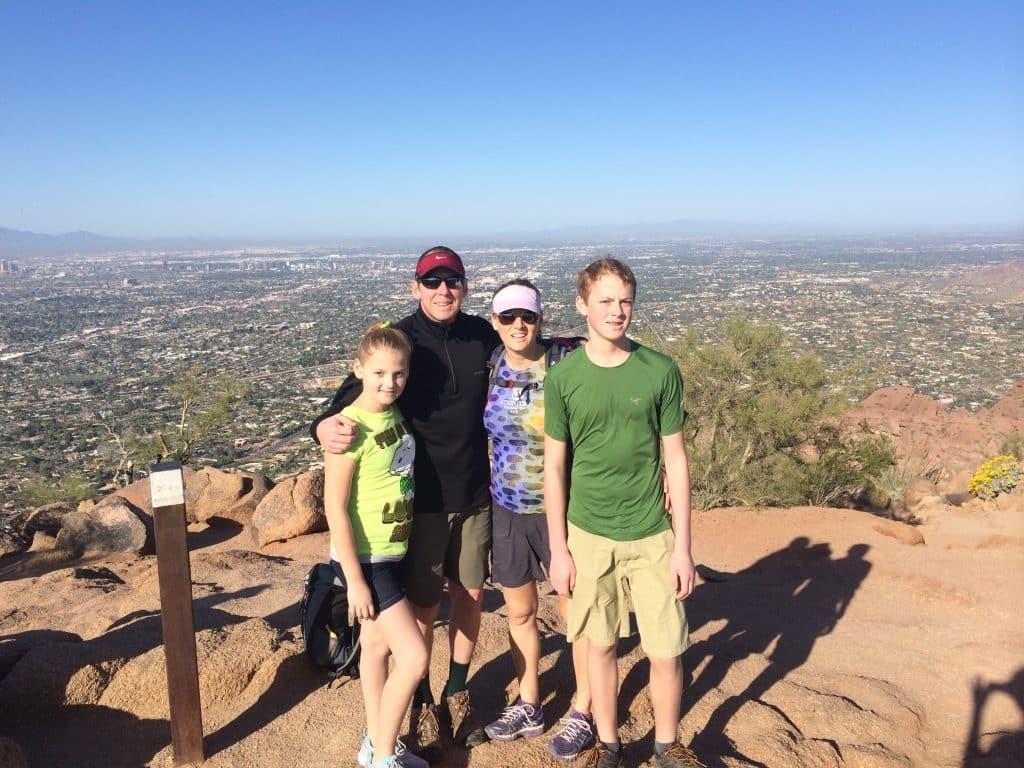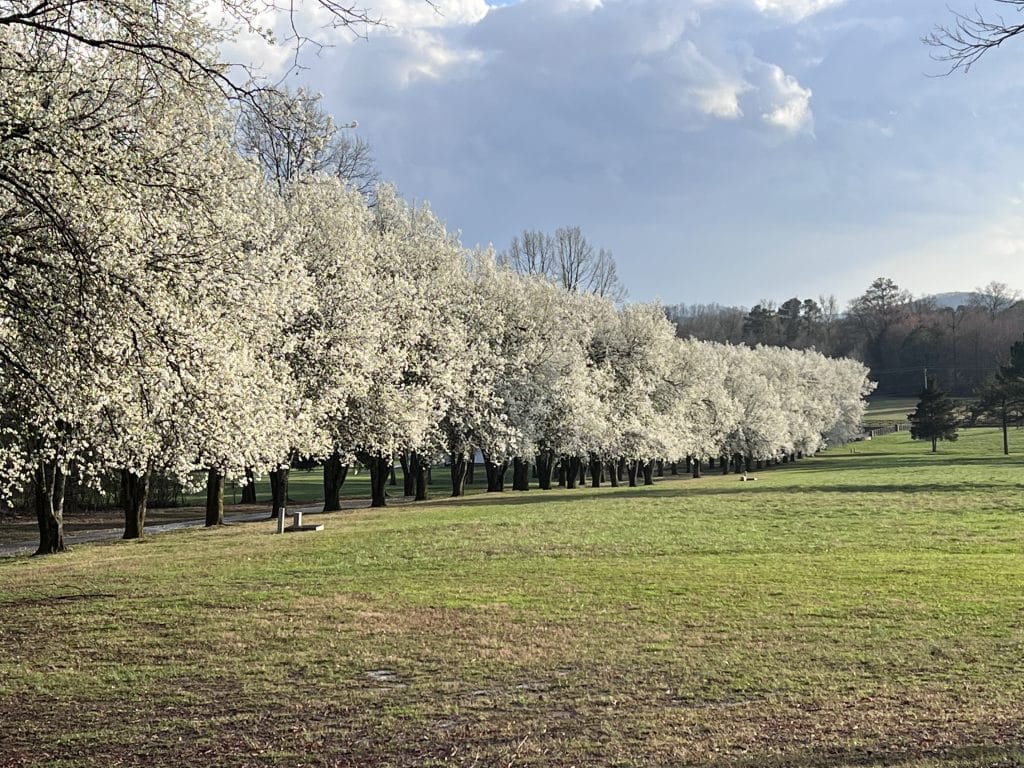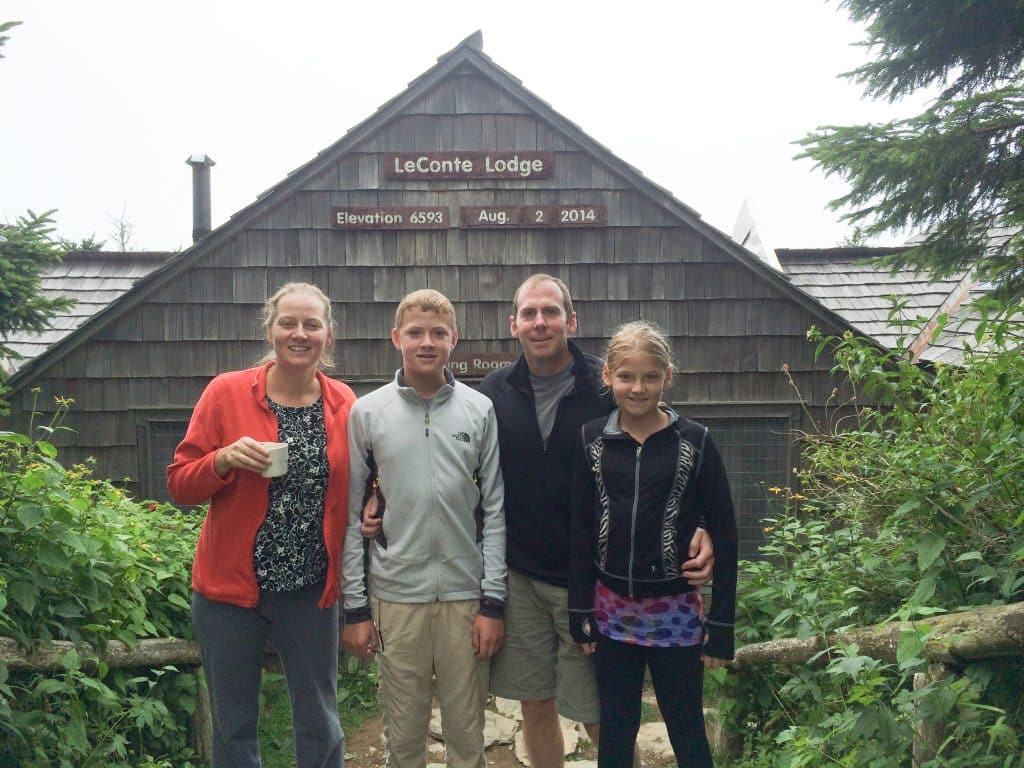Farrow Farm – Southeast TN
Part of the 25 Projects for 25 Years series.
When Franklin Farrow moved to Chattanooga in 1983 at the age of 13, he had no idea the city he would call home was about to undergo a major transformation. His family relocated from South Carolina so that he and his three sisters could enter the Southern Adventist school system and eventually attend Southern Adventist University. At the time, Chattanooga had just been named the dirtiest city in America—a far cry from the vibrant, thriving city it is today. A few weeks ago, we chatted with Franklin Farrow about how he partnered with The Land Trust for Tennessee to protect his property in Ooltewah, TN in 2007.
“I remember thinking we were coming to a neat place, and we still think we are. But at the time, the city was motivated to change, and leaders came together to revitalize the area,” Franklin recalled. Over the next 40 years, Chattanooga would evolve into a hub for outdoor activities, with a revitalized riverfront, restaurants, and even an Ironman Triathlon. Franklin grew up in the suburb of Ooltewah and attended Southern Adventist University before starting his career at a national nursing home chain in nearby Cleveland, Tennessee. In 1996, he co-founded Independent Healthcare Properties, LLC, marking the beginning of his entrepreneurial journey.

Farrow family.
Franklin’s deep connection to the land runs in the family. His father, a civil engineer, introduced a greenway system to the City of Collegedale, where Franklin’s family settled. “At the time, small cities didn’t typically have greenways, but my dad helped put in a three-mile system that has since expanded into parkland used for concerts, weddings, and community events.” The McKee family later added 11 acres to the park, further enhancing the area.
In the 1980s, Franklin’s family purchased 10 acres of rural land from a community benefactor named Bill Hulsey, a real estate investor and philanthropist who played a key role in the growth of the region. Franklin fondly remembers growing up on this land, across the street from Mr. Hulsey’s 70-acre property, nestled at the base of Grindstone Mountain—a place with historical significance for Indigenous communities.

Blooming trees at Farrow Farm.
Years later, when Franklin graduated and got married, he and his wife purchased 5 acres from three sisters who were subdividing and selling their property. That was just the beginning of Franklin’s journey into landownership and conservation. “When the elderly widow Mrs. Smith, who lived nearby, decided to move on, she offered me the opportunity to buy her 40 acres. That was my first major land purchase as a young person.”
Franklin and his family eventually built their current home on that land, where they’ve lived for over 15 years. Around the same time, Franklin’s business partner Greg Vital introduced him to The Land Trust for Tennessee. Inspired by other landowners like the Beasleys, Franklin struck up a relationship with The Land Trust and decided to conserve his land. “I realized it was the right time and place to put a conservation easement on the property, so I did mine, and Scottie Mayfield actually did his the same day.”

The Farrow Family.
Franklin’s commitment to conservation didn’t stop there. He purchased 70 acres of Bill Hulsey’s old farmstead to protect it from development, and over time, he continued acquiring more land around Grindstone Mountain, convincing friends and neighbors not to develop their properties either. “Forty years ago, my family bought 10 acres, and now, through influence and commitment, hundreds of acres haven’t been developed. The Land Trust sign on my fence has become a conversation starter.”
Franklin’s dedication to conservation extends beyond his personal land. He serves on the board of Southern Adventist University, where he champions the idea of “sense of place”—the emotional connection people form with the land. For Franklin and his family, their land on Tallant Road is more than just property; it’s home. “It’s where our roots are planted, where our children were born, and where we’ve hosted family gatherings and weddings. The land holds memories, and that connection only grows over time.”

The next generation of the Farrow Family.
“They take their role in protecting land and their relationship with landowners very seriously,” Franklin said of The Land Trust. Franklin has proudly recommended The Land Trust for Tennessee to others, including a neighbor who recently inquired about conserving his land. “I believe conservation easements are a way to say thank you for being a steward of the land, not just a tax tool. The Land Trust takes their job seriously, and I’m proud to be part of that legacy.”
For Franklin Farrow, land conservation isn’t just about protecting property—it’s about preserving the history, culture, and future of the community. Through his partnership with The Land Trust for Tennessee, Franklin has helped ensure that the land he cherishes will remain conserved for generations to come.
Find out how you can support The Land Trust for Tennessee’s conservation work.